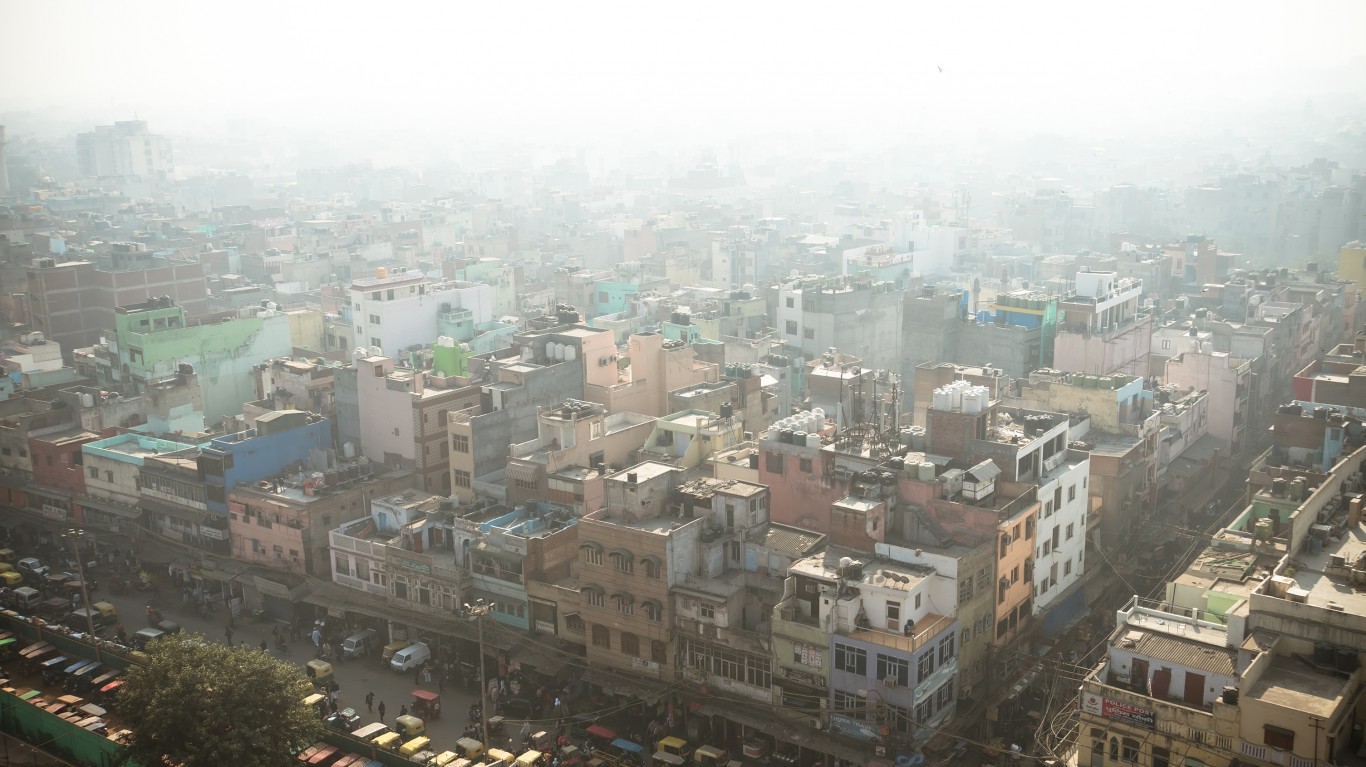

The air pollution in New Delhi reached what the EPA would measure as a level that would create hazardous health conditions. The agency uses five measures—“ground-level ozone, particle pollution (also known as particulate matter), carbon monoxide, sulfur dioxide, and nitrogen dioxide.” India’s Air Quality Index uses similar yardsticks. The AQI in New Delhi was 480 on Friday, which the Indian government labels “severe”. Regardless of which measure is used, the air in the city is close to unbreathable.
The Economic Times reports: “In a letter to chief secretaries of Delhi, Haryana, Rajasthan and Uttar Pradesh, EPCA Chairman Bhure Lal said, “The air quality in Delhi and NCR deteriorated further last night and is now at the severe plus level. We have to take this as a public heath emergency as it will have adverse health impacts on all, particularly our children.”
According to 24/7 Wall St.’s 25 “Most Polluted Cities in the World”, New Delhi is the fifth most polluted city. “Delhi, India is the second most polluted city in India and the fifth most polluted in the world. The average level of concentration of PM2.5 in Delhi is 122 micrograms per cubic meter of air. PM 2.5 air pollution is nearly seven times more concentrated in Delhi than it is in Visalia-Porterville, California, the most polluted metro area in the United States,” the 24/7 analysis shows.
The 24/7 article added, “Heavy industrialization and a rising standard of living are the most common causes of high concentrations of air pollution in the cities on this list — though they are not the only culprits. In some of the most polluted cities, high concentrations of fine particulates in the air are the result of lacking or non-existent public works infrastructure, such as sewage systems.”
There is no sign that in the world’s most polluted cities that there is any significant effort to improve air quality levels. Factories, automobiles, and the fuel used to heat homes and cook are either hard to regulate or are essential parts of the economy, and cannot be restricted for financial reasons.
Essential Tips for Investing: Sponsored
A financial advisor can help you understand the advantages and disadvantages of investment properties. Finding a qualified financial advisor doesn’t have to be hard. SmartAsset’s free tool matches you with up to three financial advisors who serve your area, and you can interview your advisor matches at no cost to decide which one is right for you. If you’re ready to find an advisor who can help you achieve your financial goals, get started now.
Investing in real estate can diversify your portfolio. But expanding your horizons may add additional costs. If you’re an investor looking to minimize expenses, consider checking out online brokerages. They often offer low investment fees, helping you maximize your profit.
Thank you for reading! Have some feedback for us?
Contact the 24/7 Wall St. editorial team.


